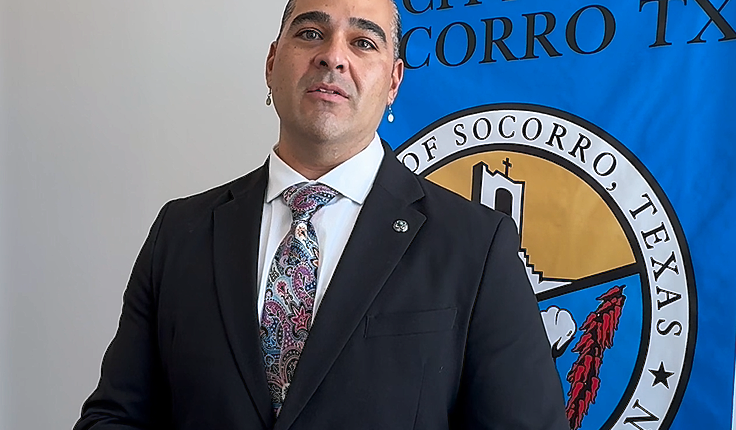Share this @internewscast.com
SOCORRO, Texas (Border Report) – Border communities like Socorro were built and thrive to a large extend on their Spanish and immigrant heritage.
That’s why the prospect of challenging residents on their immigration status horrifies some local officials.
“We are not going to do the job of the federal government,” Mayor Rudy Cruz Jr. said. “If you pick a lock here, you will be dealt with by the local police agency. But if you’re an illegal immigrant or you have a status that is not considered to be favorable by the United States government, that is not something we are going to go after.”
The concern comes as the Texas Legislature on Sunday sent to Gov. Greg Abbott SB 8, a bill requiring county sheriffs to cooperate with U.S. Immigration and Customs Enforcement through a federal program called 287(g).

The program is named after a section in an addendum to the 1996 Immigration and Nationality Act (INA) delegating to state and local law enforcement the authority to perform limited immigration enforcement. It affects every Texas county that has a jail or pays a private contractor to run one.
Abbott hasn’t signed the bill but previously expressed his support for it.
El Paso County Commissioner Iliana Holguin, whose precinct includes Socorro, and County Judge Ricardo Samaniego are waiting on a briefing from the County Attorney’s Office to see what their options are.
But “we are going to do whatever we can to make sure our community continues to be safe and know they can call the Sheriff’s Office for help, if they need it,” Holguin said. “We don’t want them to be scared to call the police – no one should be scared to call the police – and, unfortunately, I’m afraid that’s exactly what’s going to happen.”
An immigration attorney, Holguin has previously shared insights with Border Report about how difficult it is to gain the trust of immigrants when it comes to them accessing government services or become more civically engaged. SB 8 could set back those efforts.
“Basically, what SB 8 does is force our local law enforcement to become immigration agents. Our local law enforcement doesn’t have the training required to do that,” she said. “There could potentially be an issue of legal liability for the county. Immigration law is incredibly complicated. It’s not something where determinations regarding lawful status can easily be made by asking one question or looking at one document.”
That likely means having to spend county funds on legal training for sheriff’s deputies instead of using that money for public safety needs, she added.
Pending legal briefings to county commissioners, Holguin is looking at the nuances of 287(g) to both comply with the expected new state law and minimize loss of trust with the public.
Local governments can join 287(g) in one of three ways. There’s the task force model that absorbs a number of local police officers to straight up enforce immigration laws. There is the warrant service officer model in which ICE trains and certifies local police officers to serve and execute administrative warrants – such as immigration violations – inside jails.
The third model is called jail enforcement. It is designed to stick to finding and processing “removable aliens” – those already charged or with pending criminal charges – under ICE supervision.
“To me, that may be the best of the three worst scenarios because at least that doesn’t mean our sheriff’s deputies are out in the community enforcing immigration law – that would be absolutely horrible from my perspective,” Holguin said.
She said El Paso County sheriff’s deputies already cooperate with ICE when it comes to immigration retainers. That’s a request from ICE to hold an inmate or detainee for them once the individual is done with his or her sentence or was set to be released on bond.
Socorro, meantime, is celebrating the arrival of a Taiwanese data processing facility that will employ 500 residents from the region, and bring attention to the city for its economic vitality — not its resident’s immigration status.












